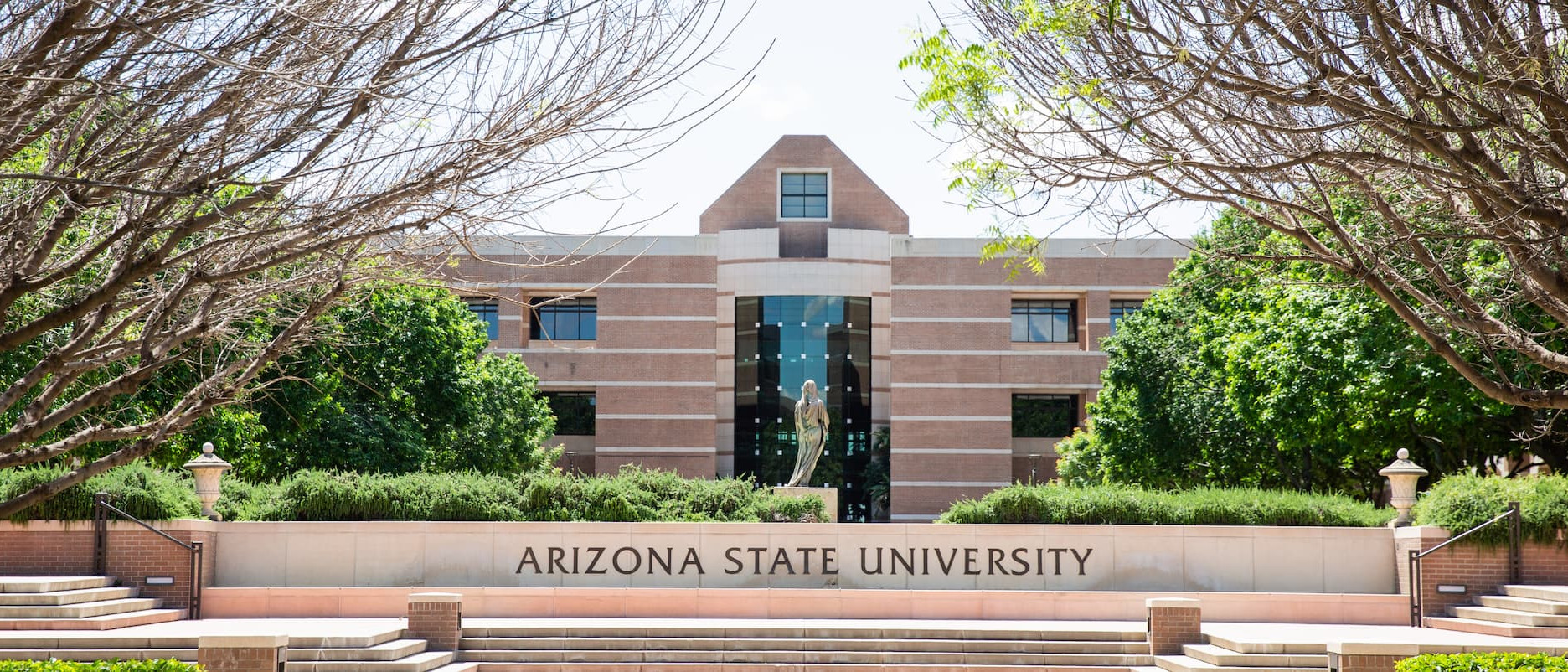

Arizona State University (West Valley Campus)
Community Health, BS
Study detals
: Bachelor's degree : Community Health, BS NUCHLTBS : Full time : 48 MonthRequirements
Academic requirements
First-year students must:
- Have a 3.00 grade point average (GPA) (a "B" or better where "A"=4.00) from a secondary school. Some ASU programs may have higher admission or English proficiency requirements and may consider a minimum ACT or SAT score.
- Must have three years of high school coursework. (If you are currently in high school, ASU needs to see 9–11 grade coursework. If you have completed high school, ASU needs to see 10–12 grade coursework.)
- Must have and present a completed high school diploma or certificate.
Conditional admission
ASU may offer conditional undergraduate admission to international applicants to an on-campus program who meet the academic (aptitude) requirements but who are not proficient in English. This offer of conditional admission will give you time to improve your English proficiency before you start classes at ASU. Your conditional admission offer is good for up to three semesters, during which time you must meet one of these requirements to begin your ASU experience.
Competency requirements
International students who completed high school outside the U.S. are required to meet the following competency requirements:
- Math: four years (algebra I, geometry, algebra II and one course requiring algebra II as a prerequisite).
- Laboratory science: three years total (one year each from any of the following areas are accepted: biology, chemistry, earth science, integrated sciences and physics).
Provide evidence of English language proficiency (TOEFL 61)
Speciality
Available online
Additional information
Program description
Modern health care extends beyond the hospital and into local neighborhoods. Whether it means ensuring everyone has access to nutritious and fresh foods or providing vulnerable populations with preventive checkups, health care is now a community matter.
The BS in community health develops leaders who are dedicated to addressing health challenges at their source and creating partnerships with both public and private organizations to leverage resources. By creating a communitywide response to these challenges, graduates can better advocate for patients and provide education opportunities for people of all backgrounds.
Students with an interest in community change find that this degree prepares them to be informed health activists, organizers, planners and well-rounded members of the local, regional and national community.
Key program areas of emphasis:
- advocacy for diverse individuals, families and communities
- providing health education, health promotion and care coordination
- providing understanding of environmental concerns and their impact on health
- understanding components of a healthy, sustainable community
- Graduates of this program provide health education, health promotion, care coordination, disease management, health care navigation and advocacy
- services for individuals, families and communities.
This degree program has the same prerequisites as the nursing major; therefore, students may transition seamlessly to this program and obtain a bachelor's degree in a health-related field.
Concurrent program options
Students pursuing concurrent degrees (also known as a “double major”) earn two distinct degrees and receive two diplomas. Working with their academic advisors, students can create their own concurrent degree combination. Some combinations are not possible due to high levels of overlap in curriculum.
Accelerated program options
This program allows students to obtain both a bachelor's and master's degree in as little as five years. It is offered as an accelerated bachelor's plus master's degree with:
- Aging, MS
- Healthcare Innovation, MHI
Acceptance to the graduate program requires a separate application. Students typically receive approval to pursue the accelerated master’s during the junior year of their bachelor's degree program.
Global opportunities
Global experience
Study abroad allows community health students to learn how to address the health needs of diverse populations. By immersing themselves in a culture outside the United States, students can learn about global health trends and how people in another country have advocated for positive change in the health care systems of their communities.
Career opportunities
Graduates may obtain employment as:
- community health managers
- community health outreach specialists
- health care navigators
- health promotion evaluators
- health services administrators